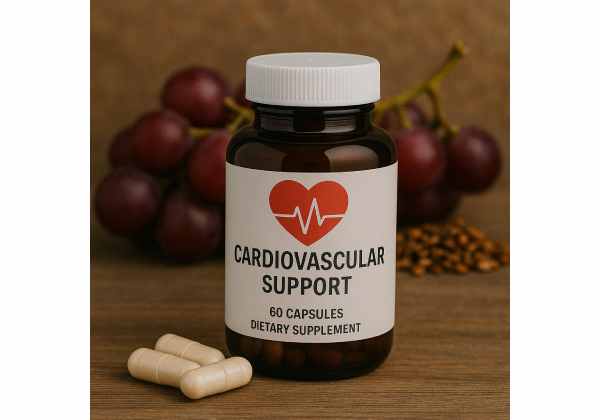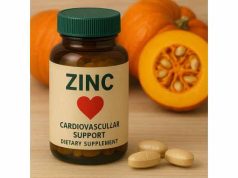
Grape seed extract has attracted considerable attention for its potential to enhance heart health and reduce the risk of cardiovascular complications. As medical research continues to reveal its diverse therapeutic applications, grape seed extract has become a popular choice for individuals seeking natural support for blood pressure regulation, cholesterol balance, and arterial wellness. In this article, we will explore how grape seed extract works, review scientific evidence of its effectiveness, discuss optimal dosages, and provide practical guidance on incorporating it into daily routines. Whether you’re hoping to maintain a healthy cardiovascular system or manage existing heart-related challenges, grape seed extract offers a promising avenue for holistic care.
Table of Contents
- Comprehensive Overview of Grape Seed Extract
- Mechanisms Behind Grape Seed Extract’s Efficacy
- Scientifically Backed Advantages for Heart and Vascular Health
- Suggested Serving Guidelines and Precautions
- Grape Seed Extract FAQ: Quick Answers to Common Queries
- Research Citations and Trusted Resources
Comprehensive Overview of Grape Seed Extract
Grape seed extract is derived from the crushed seeds of grapes, typically those used in winemaking. These seeds are abundant in natural compounds called oligomeric proanthocyanidins (OPCs), which are known for their antioxidant properties and possible roles in boosting cardiovascular health. The use of grape seeds in traditional wellness practices dates back centuries, particularly in regions where winemaking was a cultural staple. Over time, scientific research has brought renewed interest in the distinct attributes of grape seed extract, emphasizing its protective potential against various forms of heart disease.
Historical Context and Discovery
Historically, grape products have been prized for their therapeutic benefits. Ancient Greeks and Romans included grapes in a variety of medicinal preparations, treating ailments ranging from digestive issues to inflammation. The process of extracting OPCs from grape seeds began to gain traction in the 20th century, with researchers identifying the seeds’ high flavonoid concentrations. As science progressed, focus shifted toward exploring how these powerful phytonutrients might enhance health, laying the groundwork for modern-day supplements.
Core Phytonutrients
The primary reason grape seed extract is recommended for heart health relates to its concentrated polyphenols, primarily flavonoids and OPCs. These compounds possess strong free radical–fighting properties, enabling them to protect cells from oxidative stress. Excessive oxidative stress has been linked to the development of atherosclerosis, hypertension, and other cardiovascular problems. By neutralizing harmful radicals, grape seed extract helps maintain the balance and integrity of vascular tissue.
Key phytonutrients found in grape seed extract include:
- Proanthocyanidins (OPCs): These are the star components recognized for their robust antioxidant activity. Research suggests that they may help regulate blood pressure, mitigate oxidative damage, and support vessel elasticity.
- Catechins and Epicatechins: Common in tea leaves as well, these flavonoids offer anti-inflammatory benefits and can assist in modulating cholesterol levels.
- Resveratrol (Trace Amounts): Although the largest amounts of resveratrol are found in grape skins, minor levels also appear in seeds. Resveratrol is associated with healthy aging and cardiovascular protection by discouraging platelet aggregation and promoting endothelial wellness.
Traditional Uses and Cultural Significance
Beyond formal research findings, grape seeds hold a place in various folk traditions across Europe and parts of Asia. In some regions, the seeds were ground into flour or added to meals for an extra nutritional boost. Wine byproducts, including grape seeds, were also incorporated into cosmetic formulations to soothe skin and minimize the appearance of wrinkles or age spots. Today, commercial supplements leverage modern extraction techniques to produce a more potent and standardized form of grape seed extract.
Modern Production and Standards
To create high-quality supplements, manufacturers typically subject grape seeds to processes like ethanol extraction, hot water extraction, or a combination of methods, which isolate the desired OPCs while maintaining their structural integrity. After processing, grape seed extract is standardized to a specific concentration of proanthocyanidins—often around 40–80%—ensuring consistent potency across batches. In regions with regulated supplement industries, reputable products will list the percentage of standardization or the specific milligrams of OPCs on their labels.
Sustainability Considerations
Interestingly, the raw material for grape seed extract is often obtained from the remnants of winemaking, minimizing waste. This makes grape seed extract an eco-friendly supplement, as it repurposes an agricultural byproduct that might otherwise be discarded. Additionally, some producers focus on organic and pesticide-free grapes, further aligning with environmentally responsible practices.
Common Supplement Forms
Consumers can find grape seed extract in capsules, tablets, powders, and even liquid drops. While capsules and tablets remain the most popular options, liquid forms may offer faster absorption for individuals with compromised digestion. Each form provides the same foundational compounds but can vary in concentration, absorption rates, and overall bioavailability.
Connection to Heart Health
Grape seed extract’s unique chemical profile has piqued the interest of cardiologists and holistic practitioners alike. It’s frequently recommended for managing blood pressure, reducing arterial stiffness, and acting as an additional shield against free radical damage that can precipitate heart disease. When combined with a balanced diet and regular exercise, grape seed extract can become part of a broader strategy for long-term cardiovascular wellness.
Mechanisms Behind Grape Seed Extract’s Efficacy
The human body’s circulatory system is intricate, requiring continuous support to maintain optimal performance. Grape seed extract’s effectiveness stems from several biochemical mechanisms that interact with key physiological processes. Understanding these mechanisms can clarify why many healthcare professionals and researchers regard grape seed extract for heart health and cardiovascular well-being as an essential supplement.
Antioxidant Defense and Free Radical Neutralization
The free radicals generated by normal metabolism, exposure to pollutants, and other factors can wreak havoc on cells if not neutralized. Grape seed extract’s polyphenols—and OPCs, in particular—act as potent antioxidants that donate electrons to unstable molecules, effectively preventing them from injuring healthy cells. This antioxidant capacity also helps stabilize structures within the heart and vascular system, mitigating the formation of atherosclerotic plaques.
- Inhibition of Lipid Peroxidation: By protecting low-density lipoprotein (LDL) from oxidative harm, grape seed extract reduces the tendency for oxidized LDL to accumulate within arterial walls. This is a key step in avoiding atherosclerosis, a primary contributor to coronary artery disease.
- Sustaining Cellular Function: The protection offered to endothelial cells (those lining blood vessels) may enhance overall circulatory efficiency, paving the way for stable blood pressure and reduced strain on the heart.
Improved Circulation and Vascular Relaxation
Blood vessel tension and elasticity determine how effectively the heart pumps blood throughout the body. Grape seed extract aids in supporting vascular function by relaxing the smooth muscles that line arterial walls. When these vessels are more flexible, blood can flow without unnecessary resistance, potentially normalizing blood pressure.
- Regulation of Nitric Oxide (NO): Nitric oxide is crucial for vasodilation, a process that widens the blood vessels to improve circulation. Grape seed extract appears to optimize nitric oxide production or reduce its breakdown, contributing to an enhanced vasodilatory response.
- Healthy Endothelial Function: The endothelium must remain robust and unobstructed to facilitate seamless blood transport. OPCs in grape seed extract help maintain endothelial integrity, reducing the likelihood of plaque deposition.
Anti-Inflammatory Pathways
Chronic inflammation is frequently linked to the onset of heart disease and other metabolic disorders. Research indicates that polyphenols can modulate inflammatory pathways, such as those involving cyclooxygenase (COX) enzymes and cytokine activity. By tempering these inflammatory responses, grape seed extract lowers the burden placed on the cardiovascular system, thereby helping to defend against long-term damage.
Platelet Function and Blood Clotting
While platelets are critical for wound healing and preventing excessive bleeding, abnormal platelet aggregation can raise the risk of heart attacks and strokes. Some studies suggest that grape seed extract may reduce platelet adhesion, helping to keep blood flow unobstructed. This anti-platelet property can be especially significant for individuals prone to clot formation.
Cholesterol Regulation
Balanced cholesterol levels are central to reducing cardiovascular disease risk. Although lifestyle choices like diet and exercise are foundational, grape seed extract has shown promise in gently improving lipid profiles by:
- Elevating HDL (High-Density Lipoprotein): Often referred to as “good” cholesterol, higher HDL levels help shuttle excess cholesterol from tissues to the liver for removal.
- Supporting Balanced LDL Levels: Grape seed extract not only helps reduce oxidized LDL but may also promote modest reductions in overall LDL levels, contributing to a healthier lipid balance.
Synergy with Other Heart-Supporting Nutrients
One of grape seed extract’s advantages is its compatibility with various other cardiovascular-supportive substances. Coenzyme Q10 (CoQ10), fish oil (rich in omega-3 fatty acids), magnesium, and hawthorn berry are all frequently paired with grape seed extract. The synergy between these nutrients can amplify positive outcomes, including stable rhythms, reduced hypertension, and minimized inflammation.
Summary of Mechanisms
By combining antioxidant, anti-inflammatory, and circulatory-improving actions, grape seed extract delivers multi-pronged protection to the cardiovascular system. These mechanisms intersect in ways that foster better heart performance, reduced stress on arterial walls, and lower susceptibility to conditions like atherosclerosis and hypertension. While individual results may vary based on one’s baseline health, the broad protective scope of grape seed extract makes it an appealing consideration for anyone aiming to strengthen heart function and maintain robust vascular health.
Scientifically Backed Advantages for Heart and Vascular Health
The use of grape seed extract for cardiovascular health has been explored in numerous studies. Emerging data lends credibility to its role in promoting heart and arterial function, as well as potentially slowing the progression of certain cardiovascular ailments. Below, we delve into some of the most compelling evidence regarding grape seed extract’s influence on various aspects of heart health.
Blood Pressure Modulation
Research indicates that grape seed extract can help support healthy blood pressure levels. Several clinical trials have provided insights into how a combination of vasodilation and antioxidant activity contributes to favorable changes in systolic and diastolic readings. Specifically:
- Mild to Moderate Hypertension: Among participants experiencing mild elevations in blood pressure, daily supplementation with standardized grape seed extract led to moderate reductions in blood pressure values over periods ranging from 8 to 16 weeks.
- Endothelial Function: Improved vascular relaxation, likely driven by enhanced nitric oxide signaling, has been consistently observed in those who regularly take grape seed extract.
Atherosclerosis Prevention
Atherosclerosis—characterized by plaque accumulation in the arterial walls—poses a significant threat to heart health. Studies suggest that grape seed extract’s antioxidant capabilities block the oxidation of LDL, a key mechanism that initiates plaque development. When LDL remains unoxidized, it is less likely to embed within arterial tissues, reducing the formation of harmful buildups.
- Reduced Oxidative Stress: Many investigations have associated grape seed extract use with lower markers of oxidative damage. Decreased oxidative stress correlates to fewer lipid accumulations in arterial linings.
- Potential Slowing of Plaque Progression: While more large-scale trials are needed, preliminary research points to grape seed extract as a supportive agent that may slow or stabilize existing plaque, thereby contributing to improved arterial resilience.
Cholesterol Support
The relationship between grape seed extract and lipid levels is multifaceted. While it is not universally touted as a cholesterol-lowering powerhouse in the same class as certain prescription medications, grape seed extract does appear to offer subtle benefits. Some clinical and animal studies have found:
- HDL Optimization: Increases in “good” HDL cholesterol.
- Maintenance of Healthy LDL Levels: Greater stability of LDL, protecting it from oxidative processes that facilitate arterial inflammation.
Anti-Inflammatory Effects and Heart Disease
Low-grade inflammation has been identified as a significant driver of cardiovascular problems. Grape seed extract appears to help tame this inflammatory component by moderating specific cytokines and enzymes linked to vascular damage. By tempering these pro-inflammatory signals, it further enhances overall heart protection.
- Markers of Systemic Inflammation: C-reactive protein (CRP) is a common marker for cardiovascular risk. Some evidence suggests that consistent use of grape seed extract can lower CRP levels, indicating reduced systemic inflammation.
- Joint Anti-Inflammatory Benefits: Although separate from heart health, some users report decreased joint discomfort, suggesting wide-reaching inflammation-calming properties.
Cardiac Function and Arrhythmia Considerations
While more targeted research is necessary, preliminary findings hint that grape seed extract could exert a stabilizing influence on cardiac electrical function, potentially affecting arrhythmic events. Furthermore, its ability to reduce oxidative stress contributes to preserving myocardial tissues under high demand or stress conditions. Although these areas of inquiry remain emergent, the evidence to date is encouraging.
Observational Findings in Specific Populations
Certain research has focused on populations considered at higher risk for heart disease—such as older adults, smokers, or those with metabolic syndrome. Results often highlight meaningful improvements in blood pressure, vascular reactivity, and lipid status, underscoring grape seed extract’s value for individuals needing additional cardiovascular support.
Comparative Studies
When pitted against other antioxidant supplements like green tea extract or pine bark extract (pycnogenol), grape seed extract often exhibits comparable or even superior outcomes in terms of free radical scavenging and blood pressure management. This equivalence or superiority is notable, as these other botanical extracts are also lauded for their extensive cardiovascular benefits.
Ongoing Research and Future Directions
Scientific interest in grape seed extract shows no signs of slowing. Future clinical trials may delve deeper into optimal dosages, long-term safety, and more nuanced interactions with prescription heart medications. There is also growing fascination with how grape seed extract might affect emerging health metrics, such as arterial stiffness index, advanced lipid profiling, and synergy with dietary interventions.
Summation of the Evidence
Overall, the breadth of current scientific literature supports grape seed extract’s role as a valuable ally for heart health. From reducing oxidative stress and stabilizing cholesterol to nurturing vascular flexibility, this natural supplement has established itself as more than just an anecdotal remedy. Although outcomes differ among individuals, the mounting data positions grape seed extract as a noteworthy part of a multifaceted strategy to minimize cardiovascular risks and optimize heart function.
Suggested Serving Guidelines and Precautions
When considering grape seed extract for cardiovascular health, proper dosing and prudent safety measures are vital to maximize benefits. The recommendations vary based on factors like age, individual health status, and any concurrent medications. Below is a detailed look at recommended intake and considerations for safe usage.
Typical Dosage Ranges
- General Heart Health Support: Many experts recommend a daily dose of 100–300 mg of standardized grape seed extract. This range appears sufficient for those looking to maintain or slightly enhance their cardiovascular function.
- Targeted Intervention: Higher amounts—up to 600 mg per day—may be used under medical guidance, particularly for individuals focusing on blood pressure or cholesterol management. Clinical studies often use between 150–400 mg, but protocols differ widely.
Best Practices for Administration
- With or Without Food: Grape seed extract can typically be taken with meals or on an empty stomach. Some individuals find that taking it alongside food minimizes any gastrointestinal discomfort.
- Divided Doses: Splitting total daily intake into two smaller doses may help maintain consistent blood levels of the active compounds, optimizing their efficacy.
- Pair with Synergistic Nutrients: Pairing grape seed extract with other heart-friendly supplements like CoQ10, fish oil (rich in omega-3s), or magnesium may amplify benefits, though individual tolerances should be evaluated.
Potential Drug Interactions
While grape seed extract is considered relatively safe, it is important to discuss any supplement regimen with a healthcare professional—especially for those on prescription medications. Notable interactions include:
- Blood Thinners and Anticoagulants: Grape seed extract’s mild anti-platelet properties can influence blood clotting. Combining it with drugs like warfarin, aspirin, or clopidogrel may heighten bleeding risks.
- Antihypertensive Medications: As grape seed extract can assist in lowering blood pressure, combining it with prescription hypertension drugs may sometimes result in excessively low readings. Regular monitoring is advised to ensure blood pressure remains in a safe range.
Possible Side Effects
Though generally well-tolerated, some individuals may experience:
- Mild Gastrointestinal Upset: Bloating, diarrhea, or nausea can occur when starting supplementation. These effects usually diminish as the body adapts.
- Headaches or Dizziness: On rare occasions, these symptoms are reported, likely due to changes in blood pressure or circulation. Adjusting dosage or timing often helps alleviate these complaints.
Populations Requiring Additional Caution
- Pregnant or Nursing Women: Current research on grape seed extract’s use during pregnancy or lactation is limited. Expecting or breastfeeding mothers should seek medical advice before supplementation.
- Individuals with Bleeding Disorders: The anti-platelet effect, though subtle, could pose challenges for those with clotting disorders or individuals anticipating surgery. Coordination with a healthcare team is essential.
- Allergic Reactions: Anyone sensitive to grapes or related botanical families should exercise caution. While true allergy is uncommon, it is prudent to discontinue use if hives, swelling, or other allergic symptoms develop.
Quality Assurance and Product Selection
Selecting a reputable supplement ensures you receive a high-potency extract without unnecessary fillers or contaminants. Look for brands that:
- Display Standardized Proanthocyanidin Content: Aim for products specifying a concentration of at least 40% OPCs.
- Are Third-Party Tested: Independent verifications from organizations like USP (United States Pharmacopeia) or NSF International confirm purity and label accuracy.
- Follow Good Manufacturing Practices (GMP): This ensures robust production processes.
Incorporating Grape Seed Extract Into a Heart-Healthy Lifestyle
While supplementation can offer meaningful support, it should complement—rather than replace—fundamental heart-healthy habits, including:
- Balanced Nutrition: A diet emphasizing vegetables, fruits, whole grains, and lean proteins forms the foundation for cardiovascular well-being.
- Regular Exercise: Activities like brisk walking, cycling, and resistance training promote favorable cholesterol levels, stable blood pressure, and efficient circulation.
- Stress Management: Chronic stress can contribute to heart complications. Techniques such as meditation, deep breathing, and counseling help maintain emotional and physiological balance.
Prudent Usage and Ongoing Monitoring
For individuals aiming to use grape seed extract as part of a broader heart care plan, periodic check-ups and laboratory tests can track improvements or highlight any adverse effects. Blood pressure measurements, lipid profiles, and inflammatory markers (like CRP) are particularly beneficial for evaluating the supplement’s impact.
Grape Seed Extract FAQ: Quick Answers to Common Queries
Below are some frequently asked questions surrounding grape seed extract, its benefits, and how it fits into a holistic approach for heart and cardiovascular support.
Is grape seed extract for heart health effective for everyone?
Most people can benefit from grape seed extract’s antioxidant and vascular-supporting qualities, but individual results vary. Those with existing conditions or taking prescription medications should consult a healthcare provider before beginning any new supplementation program.
Can grape seed extract for cardiovascular health replace my medication?
Grape seed extract should not replace prescribed treatments or medications. It can supplement traditional therapy, supporting more stable blood pressure, cholesterol, and overall heart function. Always discuss any changes in medications or dosing with a qualified medical professional.
How long does it take to experience grape seed extract benefits for heart health?
Many users notice improvements in blood pressure or general wellness within a few weeks. Others may require longer to observe measurable changes. Consistency in dosage and complementary lifestyle habits—like exercise—often accelerate positive outcomes.
Are there any dietary restrictions when using grape seed extract helps cardiovascular function?
No specific dietary restrictions are required. However, maintaining a balanced diet rich in fruits, vegetables, and lean proteins amplifies the overall benefits. Limiting processed foods and added sugars is also advisable for optimal heart health.
Can I combine grape seed extract with other supplements?
Yes, grape seed extract frequently pairs well with nutrients like CoQ10, fish oil, and magnesium. However, consider consulting a healthcare professional to avoid overlapping effects or potential interactions, especially if you take prescription medications.
Is grape seed extract suitable for long-term use?
Short- and long-term supplementation is generally considered safe for healthy adults, provided the dosage remains within recommended ranges. Regular check-ups with a healthcare practitioner can help adjust dosages and ensure continued safety and effectiveness.
Research Citations and Trusted Resources
- Bagchi, D., et al. “Free radicals and grape seed proanthocyanidin extract: importance in human health and disease prevention.” Toxicology, vol. 148, no. 2-3, 2000, pp. 187–197.
- Sano, T., et al. “Beneficial effects of grape seed extract on malondialdehyde-modified LDL.” Journal of Nutritional Science and Vitaminology, vol. 43, no. 4, 1997, pp. 345–356.
- Yamakoshi, J., et al. “Procyanidin-rich extract from grape seeds prevents cataract formation in hereditary cataractous rats.” Journal of Agricultural and Food Chemistry, vol. 46, no. 8, 1998, pp. 2589–2592.
- Feringa, H. H., et al. “The effect of grape seed extract on cardiovascular risk markers: a meta-analysis of randomized controlled trials.” Journal of the American Dietetic Association, vol. 111, no. 8, 2011, pp. 1173–1181.
- Packer, L., et al. (Editors). The Antioxidant Miracle: Put Lipoic Acid, Pycnogenol, and Vitamins E and C to Work for You. Wiley, 1999.
Consult these resources for comprehensive insights on grape seed extract’s antioxidant profile, its effect on lipid oxidation, and its broader role in health and disease prevention. Integrating findings from diverse studies can provide a balanced and informed perspective on how grape seed extract might enhance overall cardiovascular well-being.
Disclaimer:
The information presented in this article is intended for educational purposes only and should not be taken as medical advice. Always seek the guidance of a qualified healthcare professional for personalized recommendations, diagnoses, or treatments.
We hope you found this guide on grape seed extract enlightening. Feel free to share it with friends, family, or your broader social network on Facebook, X (formerly Twitter), or your favorite community platforms. Let’s spread the word about heart health and keep growing our wellness journey together!






